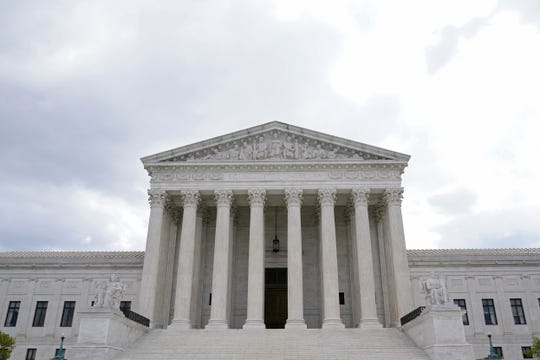Supreme court dodges dispute between Texas, California over religious freedom, gay rights
WASHINGTON – The Supreme Court declined Monday to take up a heated dispute between one of the nation’s most liberal states and one of its most conservative in a case that had pit freedom of religion against gay rights.
The decision to turn down the case drew a dissent from two of the court’s conservatives, Associate Justices Samuel Alito and Clarence Thomas.
California passed a law in 2016 prohibiting taxpayer-funded travel – such as for state employees to attend conferences – to any state that doesn’t ban discrimination on the basis of sexual orientation. Texas law allows foster-care and adoption agencies to deny same-sex couples on religious grounds.
Texas took California directly to the Supreme Court last year, asserting the travel ban was “born of religious animus” and that it violates the Constitution.
The justices had been considering whether to take the suit for months. The court did not explain its decision not to hear the case.
“If this cycle of retaliation continues, it will leave a country divided into red and blue states: The former spend money only in other red states; the latter spend money only in the blue ones,” Texas told the court last year.
Because the lawsuit started at the Supreme Court, Alito questioned the court’s decision in a dissent.
“It will not even permit the filing of Texas’s bill of complaint,” Alito wrote of the suit. “This understanding of our exclusive original jurisdiction should be reexamined.”
The potential conflict between gay rights and religious freedom has become a central theme at the nation’s highest court, which now has an ostensible 6-3 conservative majority. One of the highest-profile cases this year involves a Catholic foster-care agency in Philadelphia that has declined to screen same-sex couples based on its religious objection to gay marriage.

A view of the Supreme Court in Washington, Thursday, April 22, 2021. (AP Photo/Susan Walsh) ORG XMIT: DCSW119 (Photo: Susan Walsh, AP)
California asserts that it is striking that balance as it sees best for its residents.
“The fact that California has balanced these sometimes competing concerns differently from Texas does not demonstrate that California acted irrationally or with animus toward religion,” the state told the court.
Source: Read Full Article

